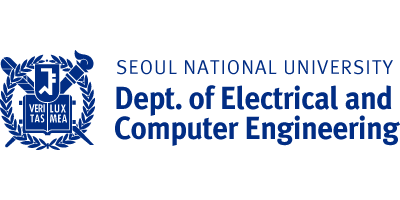Professor Sung-Hoon Kwon awarded the 36th Inchon award (The Dong-A Ilbo, 2022.09.06.)
[The 36th Inchon Award]
The award ceremony will be held on the 11th of the next month
Each recipient will receive a monetary award of 100 million KRW
▽Education = Korean Minjok Leadership Academy
▽Journalism, Culture = Soo-Ji Lee, Drawing book writer
▽Humanities, Social Studies = In-Hwan Kim, Emeritus Professor at Korea University
▽ Science, Technology = Sung-Hoon Kwon, Professor at Seoul National University, Department of Electrical and Computer Engineering
▽ Special Award = Korea Aerospace Research Institute, KSLV-II R&D Directorate
The Inchon steering committee (Chairperson Do-Yeon Kim) processed candidates for the education, journalism·culture, humanities·social studies, science·technology categories from the 1st of May until late August this year. With the judgment of authoritative external experts, awardees were selected for each of the above categories, with the addition of the special award category. The Inchon Memorial Foundation and the Dong-A Ilbo company have been awarding the Inchon award since 1987 to commemorate Inchon Sung-Soo Kim, who established Dong-A Ilbo and Kyung Sung Spinning Co.,Ltd and developed talents through Choong Ang school and Po Sung College.
The award ceremony will be held on the 11th of October in accordance with covid prevention guidelines. The awardees receive a monetary award of 100 million KRW and a medal.
“ I am glad to have received the same awards as my exceptional seniors”, says Kwon, who pioneered the combination of medical sciences and electrical engineering.
“ I have been operating the lab since 2006 and it was all possible because of the hard work put in by the students who researched together with me. Thank you for recognizing everyone’s work.”
Professor Sung-Hoon Kwon (47), a Professor at SNU, Dept. of ECE, who was selected for the science and technology category, said “There are many exceptional senior scientists that had won this award before I did. I am surprised and honored that I am receiving the same award”
Professor Kwon was involved in a traffic accident that hospitalized him for over 40 days during his 3rd year as a university student. “I realized that the equipment used in hospitals such as the MRI, CT is all part of electrical engineering. It was then that I developed an interest in biomedical engineering.”, said Kwon. This interest in biomedical engineering led to him researching the topic. He founded technological startup companies such as Quanta Matrix and Celemics based on customizable medical diagnosing technologies that he had developed. Quanta Matrix developed a system that prescribes the optimal antibiotics to sepsis patients. Kwon said, “For anti-cancer drugs, the success rate is only 25%.”, adding that, “I thought that by recommending the best possible drug to each patient, the medical costs could be significantly reduced.” His diagnosing technology provides same-day results. The professor said, “For sepsis patients, time is of utmost importance; Their survival rate decreases 7% to 9% each hour.”
Professor Kwon is a researcher who does not constrain himself to a single field of study. His sepsis diagnosing technology comprises genetic diagnostics, artificial intelligence, semiconductors, and other technologies. He said, “When a method that is widely used in one field is applied to other problems, revolutionary things can emerge.”
The Inchon Award committee members evaluated Kwon as follows: “Professor Kwon is an academic that contributed much to revealing new intellectual truths by creating clinical values through developing revolutionary diagnostics technology through interdisciplinary research, and by running clinical trials.
Merits
Professor Sung-Hoon Kwon is a pioneer of customizable medical diagnostics technology. He published over 100 SCI papers, some of which were published in Nature Materials. He is evaluated as an impactful researcher, with 10 of his most significant papers being cited over 8600 times. He received his doctorate in bioengineering at UC Berkely and has been focusing on developing scholars in the department of electrical and computer engineering at SNU. He founded Quanta Matrix Ltd in 2011 to put his sepsis anti-biotics prescribing technology into practice. He received the Young Engineer Award from The Korean Academy of Science and Technology in 2018, and a distinction from the Ministry of Science and ICT in 2019 for his contributions to national research development results.


